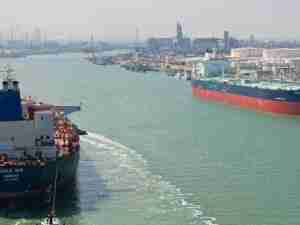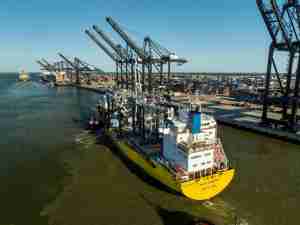Post the demerger, which will simplify Essar Shipping's business structure and unlock value, the company will be renamed Essar Ports.
The new entity will be called Essar Shipping which will be listed on the stock exchanges, said Rajiv Agarwal, managing director and chief executive.
"The whole process will take up to February-March of 2011. By March next year the entire exercise of demerger as well as listing will be completed,"
Essar Shipping, India's second largest private sector port operator, has also lined up ambitious expansion plans to ramp up capacity of its ports, shipping and oilfields businesses in coming years.
It will pump in 87.89 billion rupees in its ports business to increase capacity by FY13 to 158 million tons from 76 million tons now.
The company also plans to invest $600 million to acquire 12 new vessels and $500 million to expand its oilfields business in the same period, by acquiring jack-up rigs.
Essar's oilfield division provides contract drilling and related services to oil and gas companies worldwide, operating both offshore and onshore and currently owns a fleet of 13 rigs.
Earlier in the day Essar Shipping reported a surge in consolidated July-Sept net profit to 110 million rupees from 22.7 million rupees, led by a 53 percent growth in its ports revenue to 1.79 billion rupees.
Ports throughput during the quarter stood at 9.55 million tons, up by 4.6 percent from 9.13 million tonnes a year ago.
Essar Shipping's total operating income rose to 7.79 billion rupees from 6.71 billion rupees. Its overall current debt stands at about 84.8 billion rupees.
The company expects EBITDA margins for its shipping business at about 35 percent for next two quarters. Margins for its ports business should be around 75-77 percent, Agarwal said, roughly in line with the second-quarter level.
But freight rates will continue to be under pressure for next 6-12 months in both tanker and dry bulk segments, officials said in the call.
"There will be pressure on freight rates going forward in the next 6-12 months because there is a substantial amount of deliveries due. Whatever deliveries were delayed in 2009 is getting pushed into the market place," Agarwal said. (Reuters)










